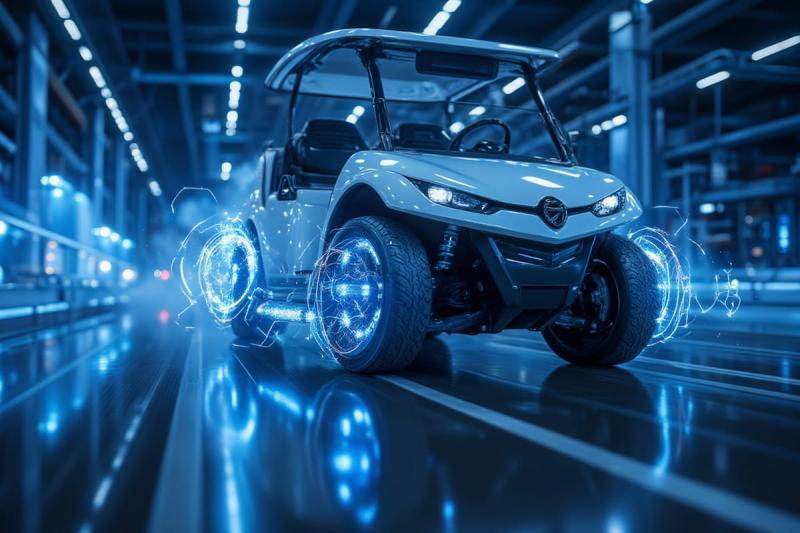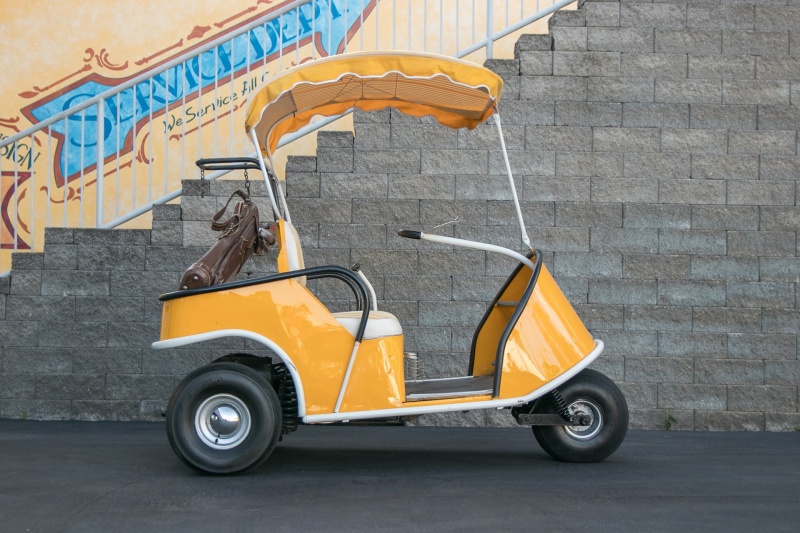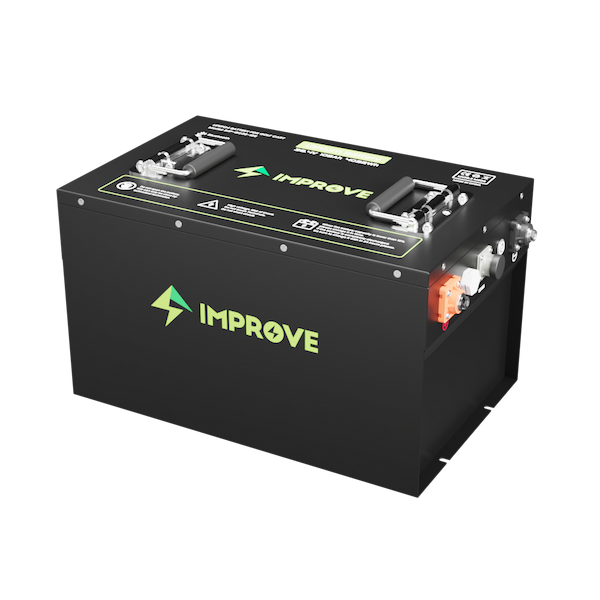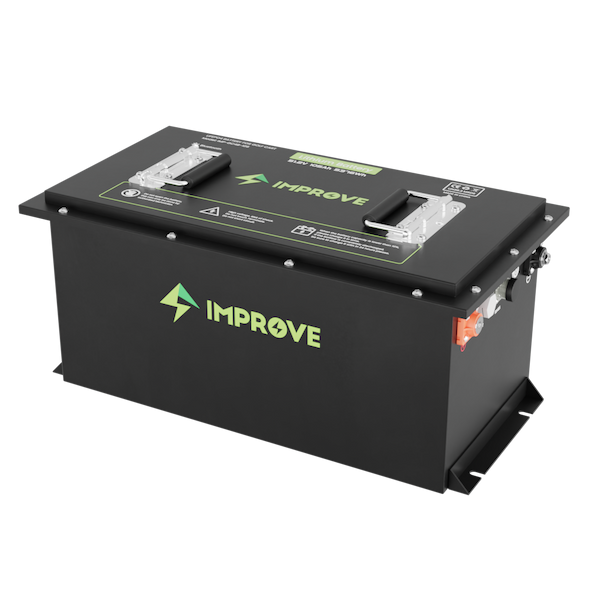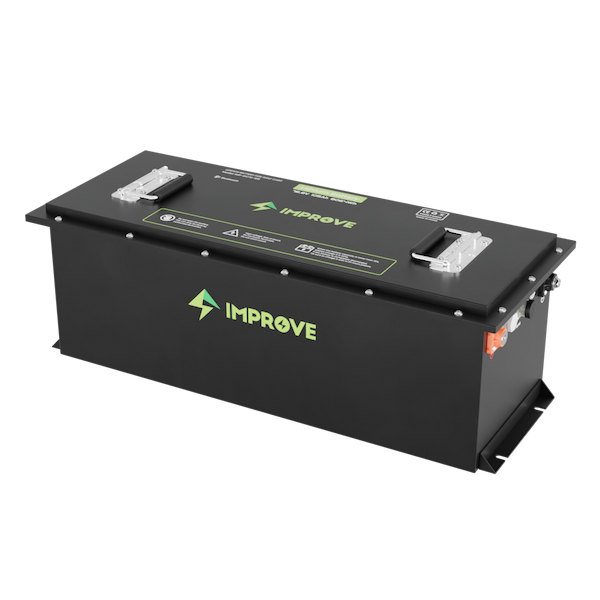Types of Golf Cart Batteries
When it comes to selecting the perfect battery for your golf cart, you have several options to consider. In this article, we'll explore two main types: lithium batteries and lead-acid batteries.
Lithium Batteries
Lithium batteries come in various types, but the most common choice for golf carts is the LiFePO4 lithium battery, short for Lithium Iron Phosphate. These batteries offer a host of advantages over other lithium-ion designs and the traditional lead-acid counterparts. Here's why they're gaining popularity:
Advantages of LiFePO4 Lithium Batteries
Lightweight and Compact: LiFePO4 batteries are notably lighter than lead-acid batteries, making them a preferable choice for golf cart enthusiasts.
High Energy Density: They provide a higher energy density, allowing for longer-lasting and more efficient power.
Low Maintenance: LiFePO4 batteries are virtually maintenance-free, reducing the hassle of routine upkeep.
Long Lifespan: These batteries can last up to 10 years, outlasting their lead-acid competitors.
Low Self-Discharge Rate: LiFePO4 batteries retain their charge for extended periods, even when not in use.
Environmentally Friendly: They are an eco-conscious option, producing minimal environmental impact.
Lead-Acid Batteries
Lead-acid batteries have been the go-to choice for various applications, including golf carts, for over a century. They offer versatility in terms of voltage range, size, and cost-effectiveness. However, with advancing technology, the drawbacks of lead-acid batteries have become increasingly apparent.
Lead-Acid vs. Lithium Batteries for Golf Carts
Lead-acid batteries have a lower upfront cost but a relatively short lifespan, requiring regular maintenance to function optimally. In recent years, lithium batteries have gained traction for several reasons:
Environmentally Friendly: Lithium batteries, particularly LiFePO4 variants, are more eco-friendly.
Longer Lifespan: Lithium batteries outlast lead-acid batteries, offering more extended service life and higher efficiency.
Low Maintenance: Unlike lead-acid batteries, lithium batteries require minimal maintenance.
High Energy Density: Lithium batteries provide more power in a compact form factor.
Lightweight and Compact: They are lighter and take up less space.
Low Self-Discharge Rate: Lithium batteries retain their charge longer, even during periods of inactivity.
In terms of the overall user experience, it's clear that lithium batteries are the superior choice for golf carts.
How Long Do Golf Cart Batteries Last?
The longevity of golf cart batteries depends on their type. Let's break down the lifespan of lead-acid and lithium-ion batteries individually.
Lead-Acid Golf Cart Batteries
Traditionally, lead-acid batteries have been the standard choice for golf carts. Their lifespan typically ranges from 4 to 8 years, contingent on several factors, including maintenance practices. Proper care, such as regular charging, equalization, and avoiding deep discharges, can extend their longevity. Over time, however, lead-acid batteries may lose capacity and require replacement when they no longer hold a charge or provide sufficient power.
Lithium-Ion Golf Cart Batteries
Lithium-ion batteries represent a more advanced option for golf carts, known for their extended lifespan compared to lead-acid counterparts. With proper care and maintenance, lithium-ion golf cart batteries can last anywhere from 8 to 12 years or even longer. These batteries exhibit greater durability and can withstand a higher number of charge cycles before experiencing significant capacity degradation. Additionally, they are generally lighter and offer superior performance compared to lead-acid batteries.
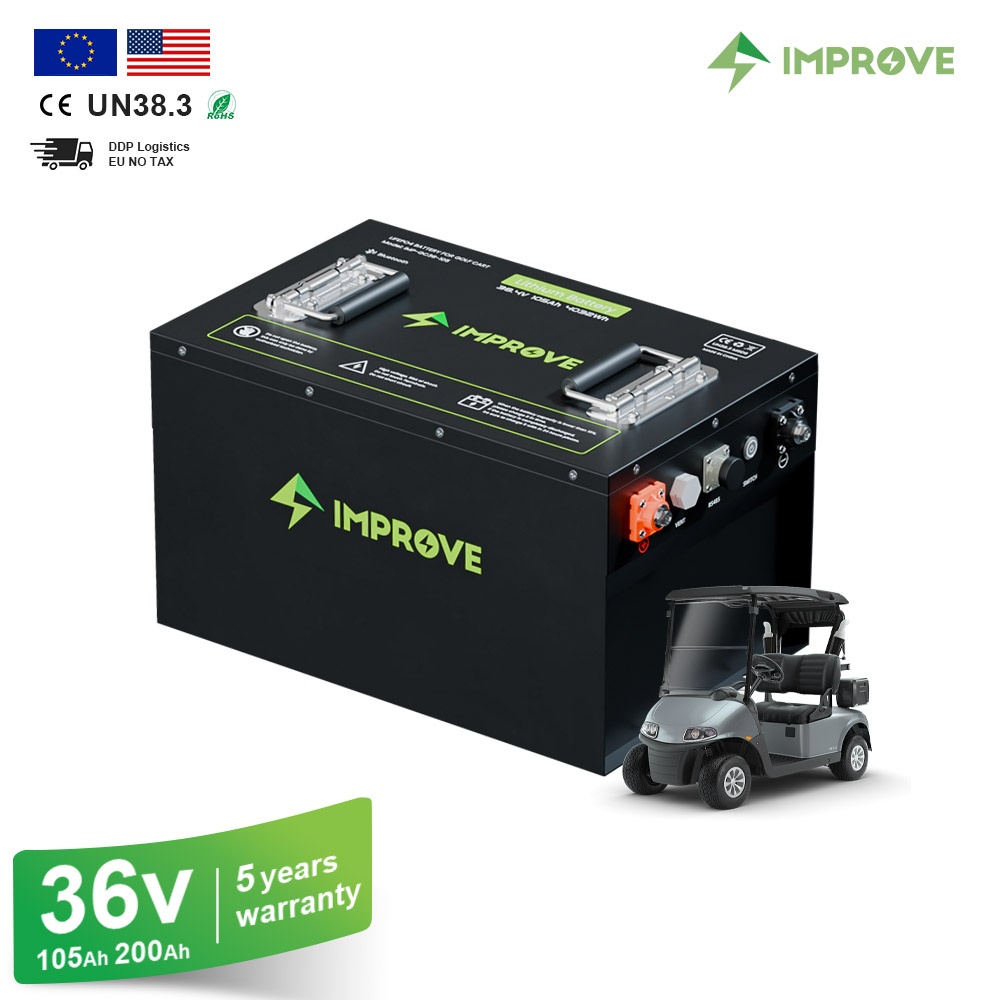
It's essential to note that the lifespan of golf cart batteries can be influenced by various factors, including battery quality, usage frequency, charging habits, and environmental conditions. Regular maintenance practices, such as keeping the batteries clean, ensuring proper ventilation, and adhering to manufacturer recommendations, can help maximize the lifespan of both lead-acid and lithium-ion golf cart batteries.
In summary, while lead-acid batteries typically last between 4 to 8 years, lithium-ion batteries offer a longer lifespan ranging from 8 to 12 years or more. This makes them the preferred choice for golf cart owners seeking durability and longevity. When selecting a golf cart battery, consider the advantages of lithium batteries, as they offer a compelling alternative to the traditional lead-acid options.



